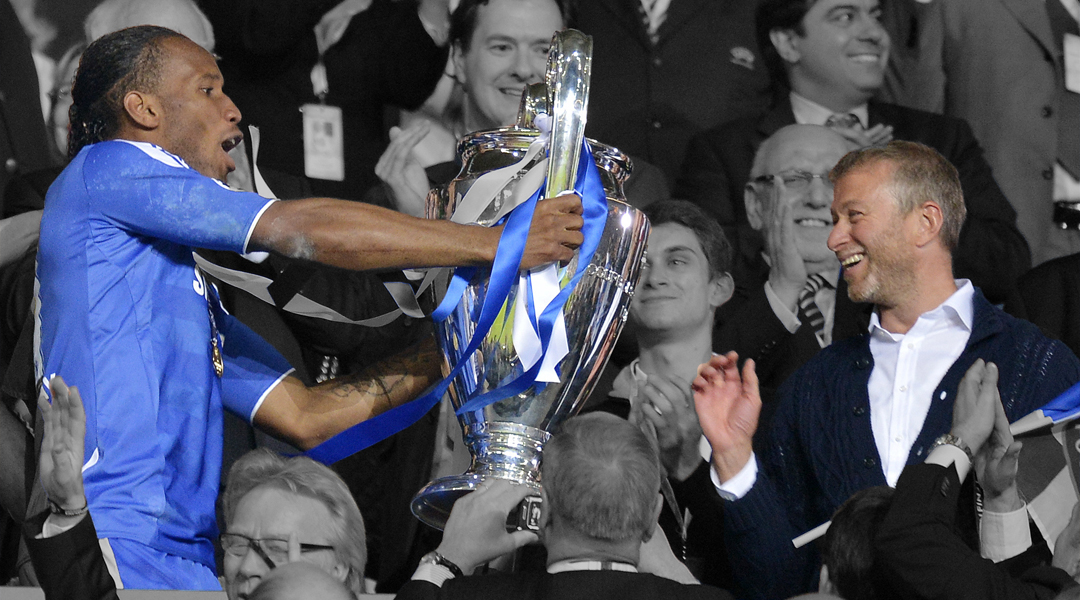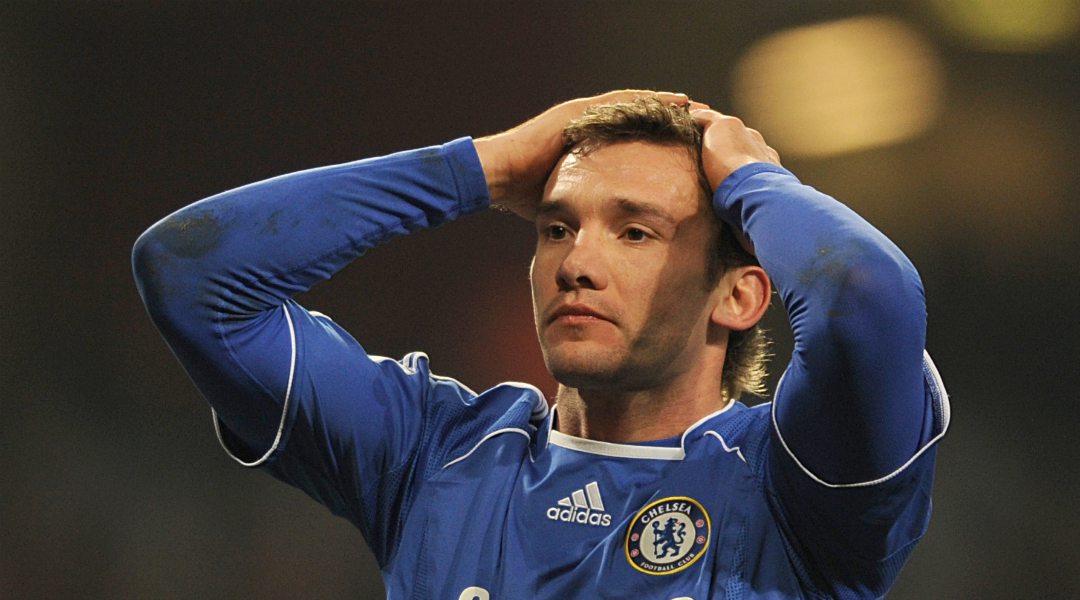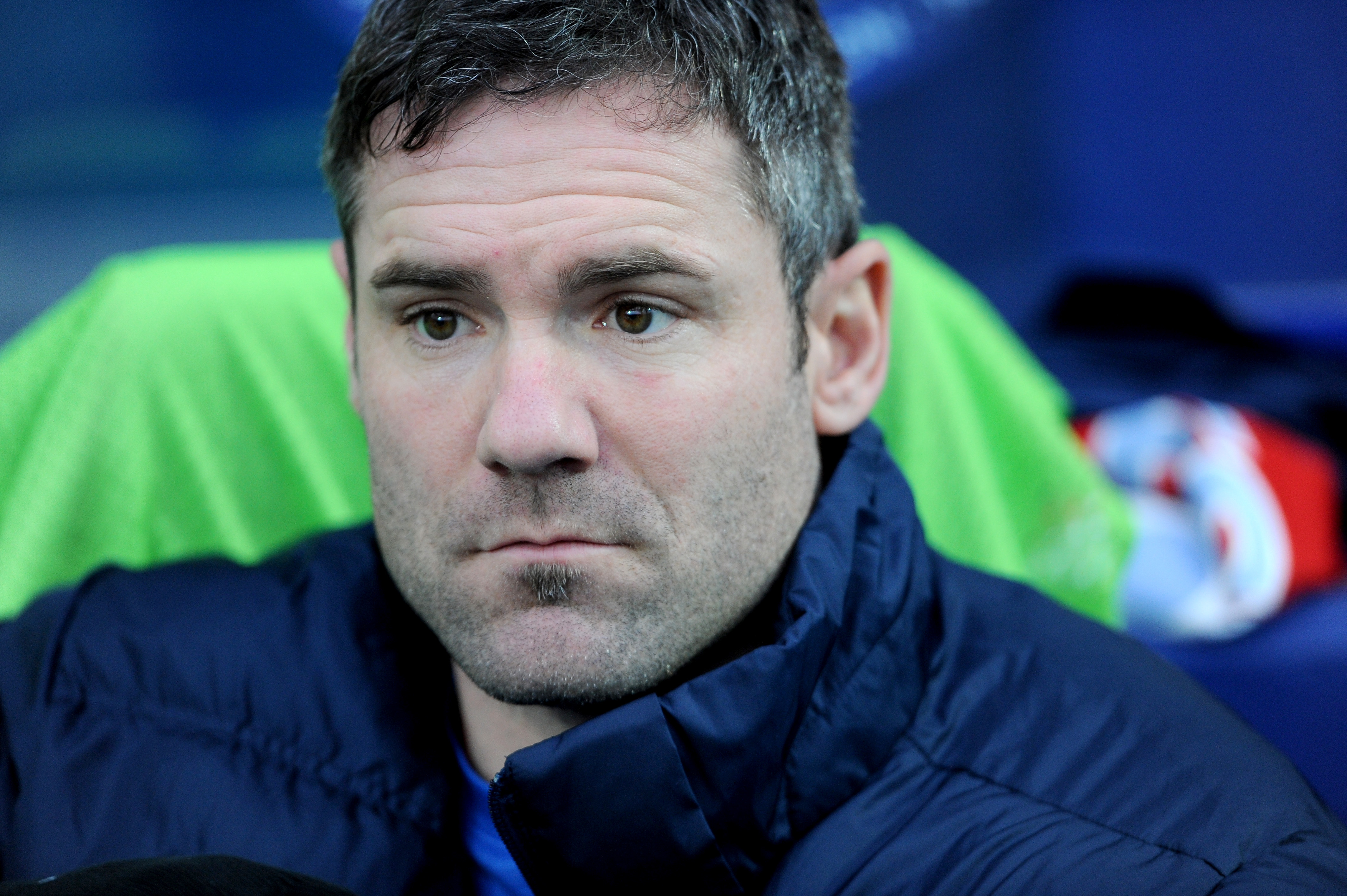
Chelsea obviously owe much to Roman Abramovich for the way he has funded the grand influx of high-end footballers to Stamford Bridge. But while the club has accrued immense playing talent since that game-changing summer of 2003, it’s not the case that all those glamorous acquisitions have lived up to their billing. Indeed, while no club will ever boast a 100% success rate with transfers, there is an unmistakable recurring theme to Chelsea’s Abramovich-era transfer business: the staggering rate at which high-profile strikers have flopped miserably.
It is a pattern likely to worry Chelsea fans who would rather their club recruited dead-eyed goal machines than shot-shanking figures of fun. And it is a pattern that should be equally troubling for Diego Costa, the west Londoners’ latest mega-money centre-forward. But will he fill Didier Drogba’s venerated boots, or step instead into the well-worn clown shoes of Stamford Bridge?
Costa does not seem a man worried by omens, but he would do well not to inspect Fernando Torres’ goal return since the Spaniard’s £50m move from Liverpool. In the three seasons preceding that January 2011 move he averaged exactly 0.5 goals per appearance; for Chelsea that has all but halved to 0.26. Similar slumps affected Adrian Mutu (0.4 to 0.26), Hernan Crespo (0.62 to 0.34), Mateja Kezman (0.77 to 0.17), Claudio Pizarro (0.42 to a woeful 0.06) and, last but not least, Andrei Shevchenko (0.66 to 0.28).
Drogba: talisman and albatross
The exception to this rule is of course Drogba himself, who adapted rather better to west London, evolving into a bona fide club talisman by bagging 157 goals and 10 major trophies in eight merry seasons, and winning the 2012 Champions League with his final kick as a Chelsea player.
The best features, fun and footballing quizzes, straight to your inbox every week.

The received wisdom is that Drogba’s incredible feats were, somewhat perversely, at least partly responsible for the doomed fortunes of other Stamford Bridge strikers – the logic here being that Drogba’s gargantuan presence both on the field and in the dressing room left no room for another forward to flourish. He was like a giant, blossoming sunflower, monopolising the daylight and the rain. Anyone transplanted into his space was doomed to wither and die in his shadow.
There have been exceptions. Nicolas Anelka and, to some extent, Demba Ba managed kept their heads above water during their brief stints, but these were players whose modest fees and clear secondary billing functioned to keep expectations comparatively low. Crespo’s feats probably don’t deserve to be listed alongside the more dismal ones of Torres and Kezman, although his role in Chelsea’s story is still a peripheral one. But almost to a man – with the obvious omission – Chelsea’s big-budget strikers under Abramovich’s ownership have ranked somewhere between luckless disappointment and abject failure.
Tactical rigidity
With Costa the first prime-aged, big-money forward to join the club since Drogba’s departure, Blues fans will hope that Chelsea’s centre-forward curse can be lifted. But there are other factors than the Ivorian's shadow.
Chief among these has been Chelsea’s apparent tendency to prioritise profile and reputation ahead of tactical suitability or even outright necessity, and thereby going some way setting their signings up to fail. Abramovich’s initial splurge upon taking over in 2003 is the best example of this, when Mutu and Crespo were added to a forward line that already boasted the lesser-known but far more dovetailed partnership of Jimmy Floyd Hasselbaink and Eidur Gudjohnsen – with the further additions of Drogba and Kezman the following year.
Similarly, the wily, predatory instincts of Shevchenko were never a clear fit for the robust athleticism demanded by a Jose Mourinho attack, and the one-time Serie A goal machine was often forced out wide and indeed out of the side altogether first by the Portuguese and then Avram Grant.

Adrian Mutu £15.8m
Hernan Crespo £16.8m
Mateja Kezman £5m
Didier Drogba £24m
Andrei Shevchenko £30m
Claudio Pizarro free
Franco di Santo £3m
Nicolas Anelka £15m
Daniel Sturridge £3.5m
Fernando Torres £50m
Romelu Lukaku £11m
Victor Moses £12m
Demba Ba £7m
Samuel Eto'o free
Diego Costa £32m
Torres was another whose tightly-fashioned tactical requirements – namely, creating as many one-on-one chances as possible – made him ill-suited to flourish in a side geared towards Drogba’s very different strengths. It should, however, be noted that Torres has been laid low not only by tactical unsuitability but physical degradation, psychological torment, managerial disinterest and dressing-room fractiousness.
An end to the Drogba era?
Costa is not a man to shirk a challenge, literal or metaphorical. The Brazilian-born, controversially-naturalised Spaniard has become known for as much for his on-field belligerence as for his rampant goalscoring, and in this sense he would appear rather more suited to spearheading a Mourinho front line than his far meeker predecessors like Shevchenko or Torres. More generally, too, it’s a style that may see him acclimatise to English football – an enterprise constantly reinforcing its self-identity as a blood-and-thunder battleground – with relish rather than resentment.
Indeed, to summon the spectre of Drogba one last time (and given the Ivorian’s undying presence at Stamford Bridge, Costa might as well get used to it), the new man’s career trajectory thus far certainly bears more than a passing resemblance to his iconic precursor.
Both spent a good number of their early years toiling in the lower echelons of Europe’s secondary leagues (Drogba in France’s Ligue 2, Costa in the second tiers of Portugal and Spain). Both, too, underwent fairly nondescript campaigns in their respective top flights before a two-year breakout spell that earned them a switch to Chelsea – at 26, Drogba was only seven months older than Costa at the time of his move.
Costa's move is obviously vitally important to him, but it's a key one for Chelsea too. A club so wealthy and successful cannot continue to act as a strikers’ graveyard forever, after all, and the more fundamental omens would appear to favour their new recruit. Perhaps Costa, a strong but skilful forward apparently unaffected by physical challenges or psychological pressure, can achieve enough success to make Drogba a happy memory rather than an impossible yardstick.
 Join The Club
Join The Club





